background-image: url(img/people.png) .left-column50[ # Introduction & Syllabus CSE493e, Fall 2023 ] --- name: normal layout: true class: --- # Important Reminder ## This is an important reminder ## Make sure zoom is running and recording!!! --- .left-column-half[ # Jennifer Mankoff Pronouns: She/her [Make4All Lab](http://make4all.org) I use technology to improve inclusion in and accessibility of our digital future. - Assistive and health technology - Fabrication/Physical computing - Improve inclusion and accessibility ] .right-column-half[ 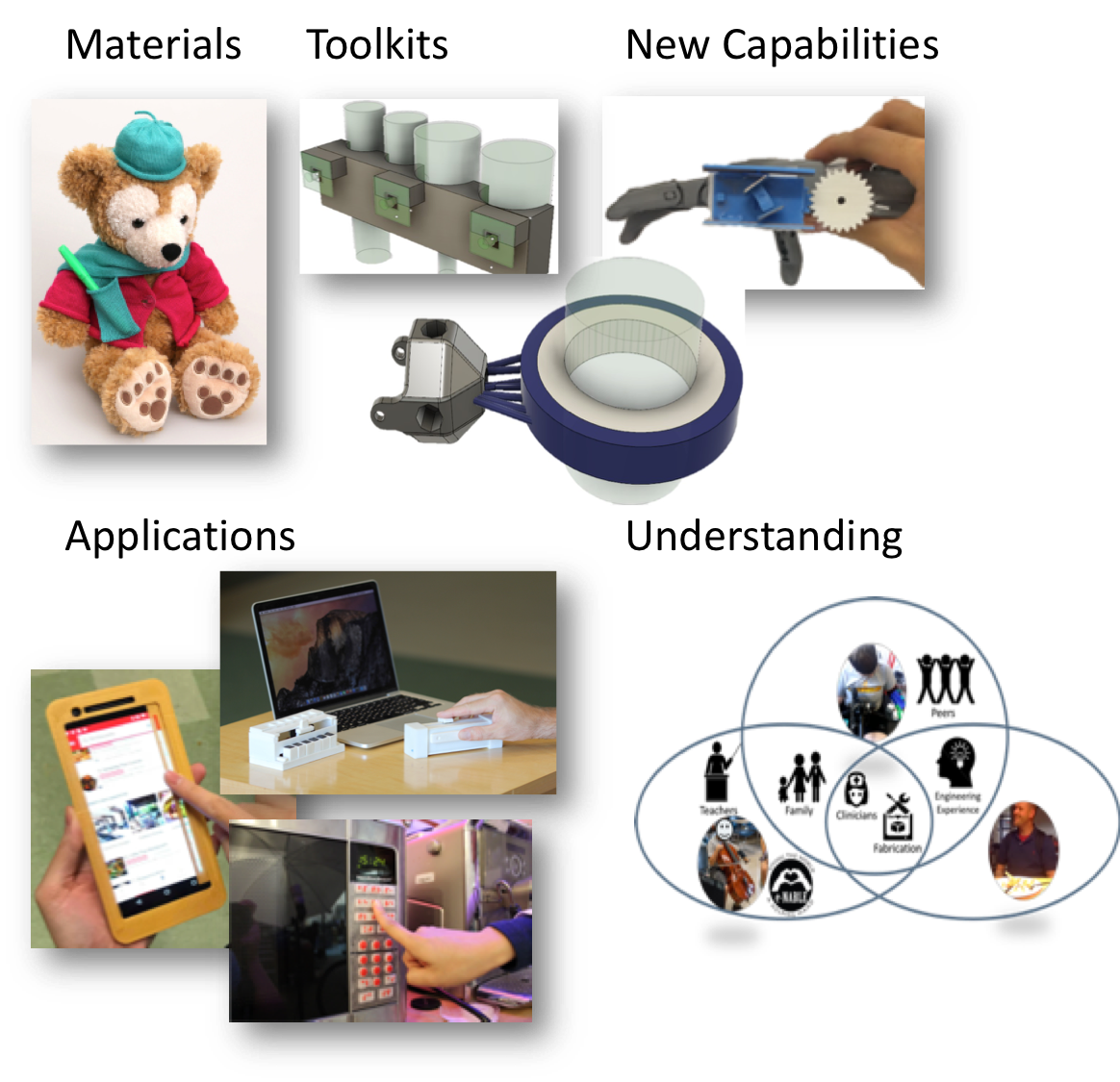 ] --- .left-column60[ # Venkatesh Potluri Pronouns: he/him PhD Student in the Make4All lab. I understand accessibility gaps experienced by blind or visually impaired software developers and address them by improving programming tools for domains such as: - Collaborative software development (https://blvi.dev/codewalk) - Data Science (https://blvi.dev/noteably-inaccessible-paper) - User Interface design (https://blvi.dev/uitap) ] .right-column40[  ] --- .left-column60[ # Jesse Martinez Pronouns: he/him 5th-year CSE PhD Student. I'm a game designer & artist who researches how to make games and art more accessible and use games and art as accessibility tools. Current Interests: - Access-Hacking Games - ADHD Support via Games - Reality TV Competitions X Accessibility ] .right-column40[  ] --- .left-column-half[ # Dhruv Khanna Pronouns: he/him 2nd-year Masters in Information Management Student. I did my undergrad in Mechanical Engineering but shifted to Software Engineering after completing my undergrad. ] .right-column-half[  ] --- # Warm up <iframe src="https://embed.polleverywhere.com/free_text_polls/egLftcNzdrLaVD8sTqdrr?controls=none&short_poll=true" width="800px" height="600px"></iframe> --- # Let's get to know you! Discuss with at least two neighbors: - Do you know whether your favorite app is accessible? - Why do you want to learn about accessibility --- # Course learning goals: ## Access Basics How do we build accessible systems and interfaces? - Week 1: Ways of thinking about and designing for accessibility - Week 2: How we assess whether technology is accessible - Week 3: Accessible needfinding and evaluation --- # Course learning goals: ## Second Wave Accessibility How do we account for access in all of today's technologies? - Multi person systems - Mobile systems - Data Equity: Visualization and Machine Learning - Making Accessibility: Fabrication and IOT - AR/VR - ... --- # Course learning goals: ## Third Wave Accessibility How does technology impact access in all the spaces where disabled people are present? - Intersectionality with Race, Gender & other identities - Sustainability - Housing, Unhoused, and Incarcerated - Healthcare technology & reproductive justice - Higher Education - ... --- [//]: # (Outline Slide) # Learning Goals for today - What is Disability? - Some Disability Law - What are some models of disability? - What is Accommodation? --- 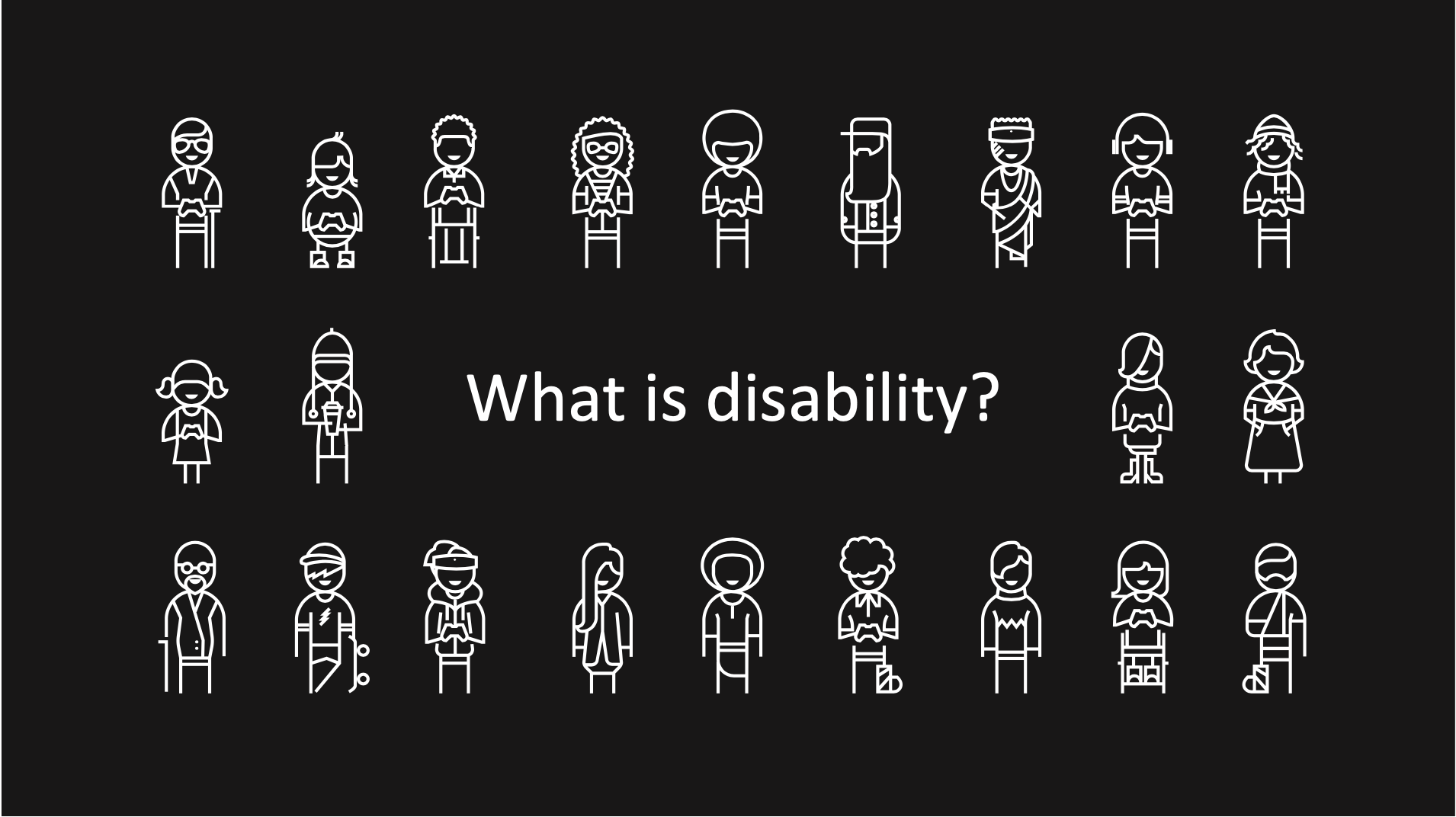 --- ## Disability: A context-dependent .red[mismatch] .left-column50[ **1980** 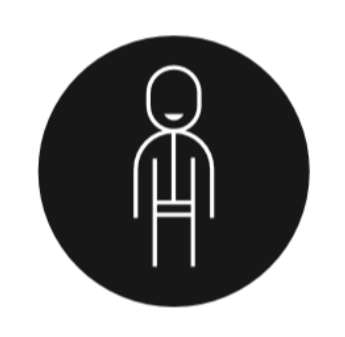 **Disability as a personal attribute** "restriction or lack of ability ... within the range considered normal for a human being" (medical model: How do we *fix people*) ] .left-column50[ **Today**  **Disability as a social/environmental attribute** "the interaction between features of a person's body and features of the society in which they live" (social model: how do we *fix society*) ] --- # Neither is quite right - Medical Model (how do we *fix people*) - Social Model (how do we *fix society*) Postmodern: Disability doesn't need to be fixed, but celebrated as part of human variation --- # Worldwide Stats 1 Billion (~15%) of population [WHO'11]; <br> 19% of USA [Census'12] | Visual | Hearing | Cognitive | Speech | Mobility | Neural | |--------------------------------------------------------------------------------------------------------|-------------------------------------------------------------------------------------|-----------------------------------------------------------------------------------------------------------------------------------|--------------------------------------------------------------------------------------------------------------------------------------------------------------------|-----------------------------------------------------------------------------------------------------------------------------------------------------|-----------------------------------------------------------------------------------------| |  |  |  |  | 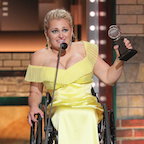 | 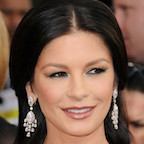 | | Ray Charles | Marlee Matlin | Temple Grandin | President Biden | Ali Stroker | Catherine Zeta-Jones | | <i>Colorblind<BR>Low Vision<BR>Blind </i> | <i>Hearing loss <BR> Deaf </i>| <i>Dyslexia <BR> Seizure <BR> Learning Disabilities <BR> Autism </i> | <i>Stutter </i> | <i>Quadriplegia </i> | <i>Bipolar<BR>Anxiety<BR>PTSD<BR>Depression </i> | --- # Worldwide Stats .left-column60[ 1 Billion (~15%) of population [WHO] 19% of USA [Census'12] Rates of disability are increasing - Aging population - Situational Impairment - Increasing numbers of people with chronic illness (can span disability segments) ] .right-column40[ | Parkinson's Disease | ALS | | --- | --- | |  |  | Michael J. Fox | Prof. Stephen Hawking | | Parkinson’s affects <br>cognition, speech and mobility | ALS affects mobility and speech | ] --- .left-column50[ ## Accommodation Accommodation is your right - Co-producing access for all participants in a space or event - Legally mandated, but also so much more - Mandated by multiple laws in Higher Education (That is why UW has a DRS office) - Ongoing and constant legal challenges, especially to the [ADA](http://www.webaim.org/coordination/law/us/ada) - In addition, 147 countries have ratified the **UN Convention on Rights of PD** (2006) ] .right-column50[ ## Some US laws - **Individuals with Disabilities Education Act** (IDEA, 1975): Free appropriate public education in the least restrictive environment to every child with a disability. - Section 503 of the **Rehab Act** (1973): Equal access to government services - **Americans with Disabilities Act** (1990): Equal access to all goods/services ] ??? 1996 ADA complaint against San José Use of PDF inaccessible to city commissioner Web sites are a “service” and thus subject to the ADA Led to S. J. Web Page Disability Access Standard 1999 Natn’l Fed. of the Blind against AOL Based on the interpretation of the Web as a place of public accommodation (ADA) Settled out of court 2000: AOL agreed to make its browser accessible Many others (http://www.webaim.org/coordination/law/us/ada) --- # How is this class accessible? (1/3) Mental health concerns benefit from disability accommodations -- In our class this means: - we have tried to structure the class to support you (e.g. up to 2 late days on every assignment without questions asked). If you need further accommodations for any reason, consider working with [DRS](https://depts.washington.edu/uwdrs/) as well as us. --- # How is this class accessible? (2/3) Sometimes students with disabilities, such as chronic illness or mental health concerns (which are both very common disabilities among college students) may need to participate in class remotely. **Also** some disabled students may be at high risk for COVID, and should not have to worry that attending class could cause them to become ill. -- In our class, this means: - We provide for hybrid participation - We provide masks and encourage masking in person - We attend class remotely if we have cold, flu, or suspected COVID symptoms --- # How is this class Hybrid? **Attendance is expected**, by everyone in the class. However we allow remote participation *and work to ensure* that students who cannot do that, or are high risk, to have an equal experience. **Remote attendance is expected** if: - You have cold or flu symptoms or suspect you have COVID - You have caregiving / family obligations that affect class or your commute to class - You have mental health concerns or any accessibility needs that are best met by being remote --- # How do I participate remotely? 1. You *attend via Zoom* 2. You *contribute a discussion post to every small group discussion* linked to in the [class schedule/slides](/courses/cse493e/23au/schedule) 3. You fill out the *remote participation survey* portion of the [class participation survey](https://canvas.uw.edu/courses/1665828/assignments/8443511) If you cannot attend live or by Zoom, you still have to do (2) and (3) above. *In addition, you must pick a reading and post a summary of it* to the class discussion --- # How is this class accessible? (3/3) We commit to mutually working together to make it accessible. - DRS approval is required for some accommodations (specifically, those that are not available to the entire class) - But many accommodations benefit most students. This is a form of *disability justice* because access to disability documentation and comfort with disclosure are both things that are inequitably distributed -- In our class, this means that where possible, we provide those as a standard part of the class. To that end... --- <iframe src="https://embed.polleverywhere.com/discourses/4aOz1mIMOPFKYqLY1hgD5?controls=none&short_poll=true" width="800px" height="600px"></iframe> --- # Small Group Discussion What is a situation you use (or could use) an accommodation in without having a (permanent) disability-related need for it? ??? canceled this year: Summarize your discussion on our [Discussion Board](https://edstem.org/us/courses/41400/discussion) --- # Other Important Facts about this CLass - **Sharing**: Yes, but don't copy - **Plagiarism**: No - **Accessibility**: This course is designed to be accessible - **Inclusivity**: An important value in this class, and in HCI! - **Language**: I am Jen, or Dr. Mankoff - **Respect**: This class is a compact between us based on respect --- # A Note on Academic Integrity **Academic Integrity**: A course value and requirement See our [Academic Conduct](/courses/cse493e/23au/academic-conduct) page for more details Don't plagiarize. If you use someone else's text, quote them and reference them. In addition to being expected based on UW policy, this is a form of [*Citational Justice*](nature.com/articles/d41586-022-00793-1) and thus an important expression of disability justice values in our class. Therefore - If you plagiarize you will receive a 0 on participation for that assignment - If you plagiarize on any assignment, you will receive a non-competent on your disability justice competency Detour: ChatGPT rules ([Academic Conduct](/courses/cse493e/23au/academic-conduct.html)) --- # Grading Assignment completion is required. This is 10% of your grade. You have up to two late days *per assignment* for assignment completion, no questions asked. Also, this only looks at whether you did everything, not how well you did it. -- Effort is also 10% of your grade. This includes - Participation in discussion and exercises (self reported) - Participation in discussion outside of class (based on submissions to Ed) -- However, the biggest part of your grade is your *competencies* (80%). We use *competency based grading* because it prioritizes *accessibility* and *justice* and *flexibility* for students. --- # What is competency-based grading? **Traditional grading** focuses on completion of required tasks | 80% projects | 10% effort | 10% participation | |--|--| | .red[learning goal 1] | .red[learning goal 1] | .red[learning goal 1] | | learning goal 2 | learning goal 2 | learning goal 2 | | learning goal 3 | learning goal 3 | learning goal 3 | | ... | ... | ...| --- # What is competency-based grading? **Competency-based grading** focuses on evidence of progress and learning | learning goal 1 | learning goal 2 | learning goal 3 | |--|--| | .red[Evidence: HW assignment 1] | Evidence: HW assignment 1 | Evidence: HW assignment 2 | | .red[Evidence: HW assignment 2] | Evidence: HW assignment 2 | Evidence: HW assignment 3 | | .red[Evidence: HW assignment 4] | Evidence: HW assignment 3 | Evidence: HW assignment 4 | | .red[Evidence: Discussion posts] | Evidence: Discussion posts | Evidence: Discussion posts | | ... | ... | ...| Teaching and learning are centered around *learning outcomes*. This changes how we plan, assess and grade the course. --- # More detail on competencies - Competencies are the core learning goals in this class. - If you learn them all well, you will do well in the class - You will have multiple opportunities to show us you learned them You can find all of the competencies under "[Outcomes](https://canvas.uw.edu/courses/1619674/outcomes)" on canvas They fall into three categories - Accessibility Compliance (e.g. accessibility checking) - Accessible Media and Documents (e.g. writing alt text, presenting accessibly) - Disability Awareness and Justice (How you pick problems and do disability centered design) --- # How Competencies Translate to Grades On any competency, you may be rated as below competent, competent or excellent In each category (accessibility compliance; accessible media and documents; and disability awareness and justice) your grade is calculated based on how many "excellent" and "competent" scores you have - all "excellents" in all categories is a 4.0. - Only 1 "excellent" in all categories is a 3.2. - Even 1 "not competent" in any competency in a category is 3.2. - More not competents drops your grade further After each category is graded, the categories are averaged. --- # Example: Accessible Media and Documents - You do well on your first presentation -- you remember to speak slowly and describe your images. However you use a few acronyms and don't read entire quotes ("Competent") -- - The presentation slide deck and your first homework are mostly accessible, however you forget to describe any images. As a result, you score "Not Competent" on image descriptions. -- - On your next assignment you take special care with image descriptions. You are marked "Competent" but the TA has some advice on how to be write more specific and useful descriptions -- - You want to finish this, so the next time you include an image in a discussion post, you make sure to describe this, and ask the TA to review it. You followed their advice and you are marked "Excellent" --- # Where to find what The class is on the [web](/courses/cse493e/23au/index), but we have used iframes to connect this to [Canvas](https://canvas.uw.edu/courses/1665828). We try to interlink everything as much as possible. - Class discussions and all contact with instructors should happen either in office hours or through a [class discussion board](https://edstem.org/us/courses/41400/discussion) or [staff mailing list](uaccess@cs.washington.edu) - You can also request appointments for further help --- # Programming Expectations - Programming is required the final project, which you define - As such, there are no specific language or platform requirements - Small programming exercises may also happen in class using languages such as JavaScript and Python. Contact the instructors if you have any concerns about this. --- # Weekly Rhythym **Monday**: Lecture & Reading Assigned (post a reflection by Wednesday) **Wednesday**: Lecture & **Homework assigned** (due Monday; locked Wednesday) **Thursday**: Section (start on homework/cover related issues) **Friday**: Lecture --- # Field Trip ## [Assignments](/courses/cse493e/23au/assignments)